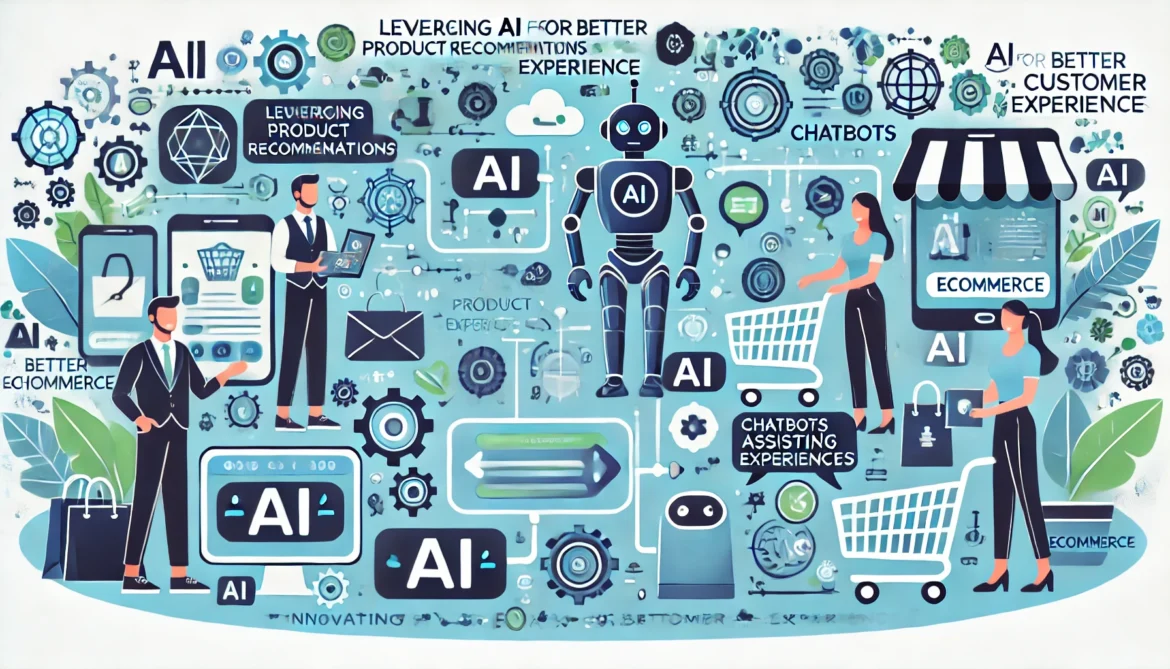Table of Contents
In the rapidly evolving landscape of eCommerce, businesses are continually seeking innovative ways to enhance the customer experience. One of the most transformative advancements in recent years is the application of artificial intelligence (AI), such as using an Image Enlarger. AI is reshaping how online retailers operate from personalized shopping experiences to automated customer service. This article will delve into various AI applications that enhance customer experience.
The Evolution of AI in eCommerce
AI technology has revolutionized the eCommerce industry by offering tools that can analyze vast amounts of data, predict customer behavior, and personalize the shopping experience. Key AI applications in eCommerce include chatbots for customer service, recommendation systems, and inventory management solutions. Each of these applications aims to make the shopping experience more seamless, efficient, and enjoyable for customers.
Enhancing Visual Appeal with AI Image Enlargers
One of the critical factors in online shopping is the quality of product images. High-resolution images allow customers to see product details, which is crucial for making informed purchasing decisions. AI image enlargers, like the one offered by Image Upscaler, use advanced algorithms to enhance the quality of images without losing detail.
Benefits of Using AI Image Enlargers:
- Improved Image Quality: AI image enlargers can upscale images to higher resolutions, making products appear clearer and more detailed. This improvement can significantly affect customer perception and trust.
- Better User Engagement: High-quality images can lead to better engagement. Customers are more likely to spend time on a site and explore products when they can clearly see what they are considering buying.
- Reduced Bounce Rates: Poor image quality can lead to higher bounce rates as customers might leave the site without making a purchase. By improving image quality, businesses can reduce bounce rates and increase conversions.
- Competitive Advantage: In a crowded market, having superior visuals can give businesses an edge over competitors. High-resolution images can differentiate a brand and attract more customers.
Personalization and Customer Experience
AI’s ability to analyze customer data allows for highly personalized shopping experiences. Personalization can range from product recommendations based on previous purchases to tailored marketing messages. This level of customization helps in building a connection with the customer, making them feel valued and understood.
Key AI Applications for Personalization:
- Recommendation Systems: These systems use machine learning algorithms to analyze customer behavior and recommend products they are likely to buy. This not only enhances the shopping experience but also increases sales.
- Dynamic Pricing: AI can help optimize pricing strategies by analyzing market demand, customer behavior, and competitor prices. Dynamic pricing ensures that customers are offered competitive prices, which can enhance satisfaction and loyalty.
- Personalized Marketing: AI can tailor marketing campaigns to individual preferences, increasing their effectiveness. Personalized emails, ads, and promotions are more likely to engage customers and drive sales.
AI-Driven Customer Service
Customer service is another area where AI is making a significant impact. AI-powered chatbots and virtual assistants can handle a large volume of customer inquiries efficiently and accurately. These tools can provide instant responses, solve common issues, and escalate complex problems to human agents when necessary.
Advantages of AI in Customer Service:
- 24/7 Availability: AI chatbots are available around the clock, ensuring that customers can get assistance whenever they need it.
- Cost Efficiency: Automating customer service reduces the need for large customer service teams, lowering operational costs.
- Consistent Service: AI provides consistent and unbiased responses, ensuring a uniform customer service experience.
Future Trends and Considerations
As AI technology continues to evolve, its applications in eCommerce will expand. Future trends may include more advanced virtual reality (VR) and augmented reality (AR) integrations, where customers can virtually try products before purchasing them. Additionally, AI’s role in supply chain optimization, fraud detection, and even psychometric tests will further streamline operations and enhance security.
However, businesses must also consider ethical implications, such as data privacy and AI bias. Ensuring transparent data practices and addressing biases in AI algorithms will be crucial for maintaining customer trust and achieving long-term success.
Conclusion
The integration of AI in eCommerce offers numerous opportunities to enhance customer experience. From improving image quality with AI image enlargers to providing personalized shopping experiences and efficient customer service, AI is set to redefine the eCommerce landscape. By leveraging these technologies, businesses can not only meet but exceed customer expectations, fostering loyalty and driving growth.







